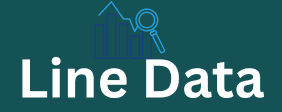In the competitive landscape of sales and professional networking, timing is a critical factor in ensuring meaningful engagement with prospects. Europe, with its diverse time zones and business cultures, demands a strategic approach to communication. Knowing the best hours to reach out can enhance your chances of securing a productive conversation and fostering long-term relationships.
Why Timing is Crucial Best Hours for Calling Prospects
Sales calls are more than just introductions—they are opportunities to build trust, present solutions, and drive business growth. A well-timed call increases the likelihood of capturing the prospect’s attention, while poor timing can lead to unanswered calls, frustration, and missed opportunities.
Cultural differences also play a role in determining the effectiveness of business communication. In some European countries, long lunch breaks or early work closures affect availability, making it essential to adapt outreach strategies to local customs.
Understanding Europe’s Time Zones
Europe spans multiple time zones, ranging from UTC in Portugal and the United Kingdom to UTC+3 in Eastern European nations like Greece, Finland, and the Baltic States. When reaching out to European prospects, time zone awareness is crucial.
Consider these key aspects when scheduling calls:
- Western Europe (UTC to UTC+1) – Includes countries like Portugal, Spain, France, and Germany.
- Central & Eastern Europe (UTC+2 to UTC+3) – Covers Poland, Hungary, Greece, Finland, and the Baltic states.
- Nordic Region – Sweden, Denmark, and Norway generally follow standard business hours similar to Western Europe.
Morning Calls (9 AM – 11 AM) Best Hours for Calling Prospects
Mornings are an optimal time for prospecting. By 9 AM, professionals have settled into their work environment and are likely to be more receptive. During this time, inboxes are checked, priorities are set, and distractions are minimal, making engagement more effective.
Midday Opportunities (12 PM – 2 PM)
Lunch hours can be a hit or miss luxembourg mobile database depending on the country. While some professionals take shorter breaks, others enjoy extended lunch periods, particularly in Southern Europe. Calling within this window may be effective for informal conversations or relationship-building calls rather than high-pressure sales pitches.
Afternoon Calls (2 PM – 4 PM)
This period is ideal for follow-ups and sales discussions. By mid-afternoon, professionals have handled urgent matters and can allocate more time for external communication. Many decision-makers prefer engaging with vendors or partners during this time before shifting their focus toward internal business operations.
Late Afternoon (4 PM – 6 PM)
Late afternoons can be effective for reaching professionals who work extended hours. However, calls made too late risk being ignored, as many employees begin winding down for the day. In countries with shorter work hours, such as Scandinavia, calls after 4 PM may be less effective.
Avoid Early Mornings and Late Nights
Calling prospects before 9 AM or after 6 PM is generally discouraged unless there is a specific reason or prior arrangement. Early morning calls may disrupt workflow preparation, while late evening calls risk being ignored or considered intrusive.
Factors to Consider Best Hours for Calling Prospects
- Industry-Specific Timing – Some material data industries have unique schedules. For example, healthcare professionals might be busiest in the morning, while IT executives may be more accessible in the afternoon.
- Business Culture – In Southern Europe (Spain, Italy, Greece), professionals may have longer lunch breaks or later work hours. In Northern Europe (Germany, Netherlands, UK), punctuality and structured business hours are prioritized.
- Public Holidays & Local Events – Before calling prospects, check if there are national holidays or business closures that might affect availability.
Conclusion
Effective communication is not just about the this is the best way to deal with anxiety at work message—it’s about when and how it is delivered. Understanding the best hours to call prospects in Europe ensures higher engagement rates, better rapport-building, and increased success in professional interactions. Whether reaching out in the morning, early afternoon, or late afternoon, well-planned timing can make all the difference in securing meaningful conversations and business opportunities.
